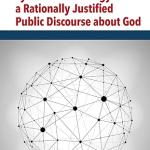What is Public Systematic Theology? Part Two
In conversation with Michael Agerbo Mørch
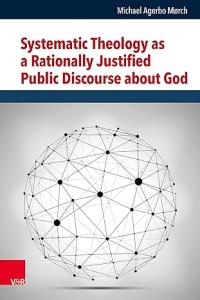 In Part One of “What is Public Systematic Theology?” we introduced Copenhagen theologian Michael Agerbo Mørch. I would like to turn Mørch‘s new book, Systematic Theology as Rationally Justified Public Discourse about God, into a ramp on a ski hill so that I can jump toward a wider discussion of public systematic theology in the context of constructive theology, comparative theology, religious studies, interreligious dialogue, and Dialog, A Journal of Theology.
In Part One of “What is Public Systematic Theology?” we introduced Copenhagen theologian Michael Agerbo Mørch. I would like to turn Mørch‘s new book, Systematic Theology as Rationally Justified Public Discourse about God, into a ramp on a ski hill so that I can jump toward a wider discussion of public systematic theology in the context of constructive theology, comparative theology, religious studies, interreligious dialogue, and Dialog, A Journal of Theology.
God, Being, and Coherence
In a manner similar to that of Paul Tillich or Wolfhart Pannenberg, Mørch does not believe God exists as one being among others. For God to exist would be to stand out from nonbeing as something finite and temporal. But God is infinite and eternal. Therefore, it is better to identify God with Being itself.
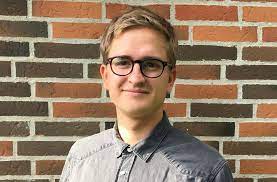
More. Here Mørch follows Lorenz Bruno Puntel, a Brazilian philosopher working in Germany. According to Puntel and now Morch, Being-as-such or Being-as-a-whole has its own logic, its own coherence. The task of the theologian is to attune theological explication to the coherence already incipient in Being. “In contrast to a constructivist understanding,” writes Morch, “coherence is not a systematicity we create but an inherent quality of Being that we discover” (Morch 2023, 114).
Here’s Mørch’s point: the coherence of public systematic theology inheres to the very explication of God. It is not reducible to an imaginary construction.
Does Public Systematic Theology engage in Interreligious Dialogue and Comparative Theology?

Does Mørch‘s version of Public Systematic Theology prepare us to engage in interreligious dialogue and Comparative Theology? Yes. Well, sorta.
On the one hand, Mørch could in principle engage in comparative theology just as others in the field do. On the other hand, Morch brings the coherence concern of PST into the study of differing reports of religious experiences. When comparing theologies of different traditions, they should be evaluated according to a coherence measure.
“That people have different kinds of religious experiences seems to be a relatively stable phenomenon throughout history and across the globe, but what to make of them? Are they subjectivist fictions, or is there a referentiality pointing to a spiritual reality not visible? We cannot decide based on the experiences alone but have to make judgements based on a more elaborated account. To go from a private to a public justification of these experiences is to let the experiences be assessed through a comparison of different theories that either include or exclude the possibility of religious experiences and then determine whether any of the theories are clearly more coherent than the others” (Morch 2023, 130).
Are inclusivity and coherence mutually exclusive?
The Truth Question
When pursuing comparative theology, Mørch does not bracket out the truth question. He would contribute more than merely nodding his head with a smile. Rather, he would press the truth question in terms of coherence. He might even measure competing theological claims according to their relative coherence. Some religious claims better. Some not so good. Now, we might ask Morch: is this dialogue or apologetics?
Let me try to clarify. Comparative theology is a form of theology itself. It is not a branch of Religious Studies. “Comparative theology must not be confused with comparative religion, since faith is a necessary and explicit factor in the former and not in the latter, where its influence might even be ruled out.” This according to Francis Xavier Clooney (Clooney, 2010, 12).
Among the sources [Scripture, tradition, reason, and experience to which we include the voices of the hitherto marginalized] upon which the comparative theologian draws is one or more non-Christian religious traditions. “Comparative theology necessarily includes actually learning another religious tradition in significant detail” (Clooney, 2010, 14). Once this learning has taken place, then a non-Christian religious worldview may become a source for public systematic theology itself. According to comparative theologian Thomas Cattoi,
“The goal of comparative theology…seeks to highlight the points of contact no less than the irreducible differences between the ways in which distinct traditions engage analogous issues of ultimate concern” (Cattoi, 2017, 37).
 In short, the public systematic theologian should engage contrapuntally both the comparative and theological tasks. As comparative, he or she or they avoids superimposing the Christian perspective on the other. Through face-to-face dialogue, this method juxtaposes two internal coherencies rather than subordinating the non-Christian to the Christian worldview. Then, following the dialogue, the Christian theologian revises in light of insights learned. The revised Christian theology remains a decidedly Christian theology. Unless, of course, a conversion to a rival coherent account of religious experience takes place.
In short, the public systematic theologian should engage contrapuntally both the comparative and theological tasks. As comparative, he or she or they avoids superimposing the Christian perspective on the other. Through face-to-face dialogue, this method juxtaposes two internal coherencies rather than subordinating the non-Christian to the Christian worldview. Then, following the dialogue, the Christian theologian revises in light of insights learned. The revised Christian theology remains a decidedly Christian theology. Unless, of course, a conversion to a rival coherent account of religious experience takes place.
What makes this peculiarly challenging is that each religious tradition is specific or particular, on the one hand. Yet, on the other hand, each tradition also makes claims that are universal. The Christian theologian makes universal claims about the one God of the one world. And, to be honest, rival claims are occasionally incomensurable.
Important here is that the comparative theologian imputes dignity and respect to every dialogue partner while being honest regarding what a Christian commitment requires in making a comprehensive and coherent claim.
Does Public Systematic Theology belong within Religious Studies?
Does Public Systematic Theology belong within Religious Studies? No.
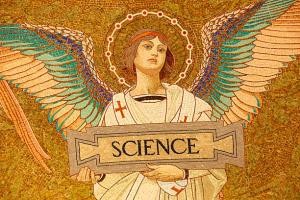
The field of religious studies brackets out the truth-claims of the religious traditions it studies. Not so for public systematic theology. The truth or falsity of theological propositions must be pursued in PST.
“It is a presupposition of religious studies that the truth question is bracketed, and that judgments of the truth-claims of the different religions are not engaged with…Systematic theology, on the other hand, has this ultimate, absolute, totality as the central theme of its investigations and therefore does not fall under religious studies. The critical question is whether the truth-aim of systematic theology can be achieved” (Mørch 2023, 361-362).
The systematic theologian, according to Mørch, must raise the truth question and proffer a justifiable answer. The relative adequacy of the justification will be measured by the criterion of coherence.
Conclusion
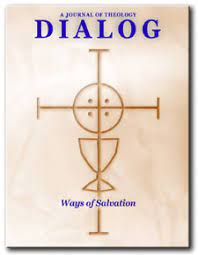
Over the decades my favorite journal dedicated to public systematic theology has been Dialog. It was founded in the counter-culture generation of the 1960s by the likes of the now late Carl Braaten, Robert Jenson, Gerhard Forde, and others. Today a new generation continues to grapple not only with the impact of science but also with global upheavals needing discourse clarification from insightful public theologians.
In this post, I have been affirming this: the public theologian begins within the circle of faith and then, honoring the canons of reason and submitting to critical revision in the university, PST offers the wider culture theological wisdom on behalf of the common good. I think Morch endorses this task of public systematic theology. Thanks, Michael.
Patheos ST 2014 What is Public Systematic Theology? Part Two
Ted’s Books on Public Systematic Theology
Ted’s Videos on Public Systematic Theology
Public Theology for the Common Good
Patheos ST 2013 What is Public Systematic Theology? Part One
Patheos ST 2014. What is Public Systematic Theology? Part Two
Patheos ST 2015. What is Public Systematic Theology? Part Three
▓
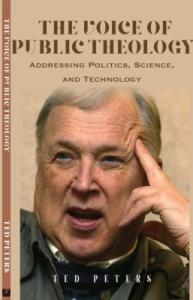
For Patheos, Ted Peters posts articles and notices in the field of Public Theology. He is a Lutheran pastor and emeritus professor at the Graduate Theological Union. He co-edits the journal, Theology and Science, with Robert John Russell on behalf of the Center for Theology and the Natural Sciences, in Berkeley, California, USA. His single volume systematic theology, God—The World’s Future, is now in the 3rd edition. He has also authored God as Trinity plus Sin: Radical Evil in Soul and Society as well as Sin Boldly: Justifying Faith for Fragile and Broken Souls. See his website: TedsTimelyTake.com.
His new 2023 book, The Voice of Public Theology, has just been published by ATF Press.
▓
References
Cattoi, Thomas, 2017. “Flawed Subjectivities: Cyril of Alexandria and Mahayana Buddhism on Volition, Sin, and Karma.” Buddhist-Christian Studies 37, 29-40.
Clooney, Francis X, 2010. Comparative Theology: Deep Learning Across Religious Borders. Oxford: Wiley Blackwell.
Mørch, Michael Agerbo. 2024. Systematic Theology as a Rationally Justified Discourse about God. Gottingen: Vanenhoeck & Ruprecht.
Peters, Ted. 2015. God–The World’s Future: Systematic Theology for a New Era. 3rd. Minneapolis MN: Fortress Press.
—. 2023. The Voice of Public Theology. Adelaide: ATF.
Tran, Anh Q., “Jesus Beyond the West: Christological Conversations in the Age of World Christianity,” World Christianity: Perspectives and Insights. Essays in Honor of Peter C. Phan. Maryknoll NY: Orbis, 2017.
Wyman, Jayson. 2017. “Interpreting the History of the Workgroup on Constructive Theology.” Theology Today 73:4: 312-324 doi.org/10.1177/0040573616669565.



